International School on Touch for Prosthetics
General
The first NeuTouch International Summer School is a 4-day virtual summer school focused on touch for prosthetics. The event will include talks from some of the top tiers international expertise of the field, presentations from the PhD students of the NeuTouch ITN, as well as discussions, Q&A moments and activities to enhance soft skills essential for young researchers.
The event will be held entirely online through ZOOM platform, the link to access will be sent to subscribers before the start of each event.
Certificate of attendance will be provided at the end of the summer school.
To obtain the certificate:
- Subscribe before Friday 18th
- Attend at least 70% of the lectures and soft-skills sessions
- Use their full name when connecting to the zoom rooms to be able to check their attendance
Program
The event is divided in 4 days between 14.00 and 18.00 (CEST).
Each day two speakers present a lecture of 1 hour each. The remaining time is divided in the presentations of our researchers' work and a soft skill class.
Day 1 - Monday 21st September
| Time | Speaker | Title | Details |
|---|---|---|---|
14.00 - 15.00 | J. Wessberg | Microneurography and microstimulation of single tactile afferents in the human hand. | Read more |
15.00-16.00 | S. Bensmaia | Biological and bionic hands: Natural neural coding and artificial perception | Read more |
16.00-17.00 | ESRs | 4 Presentation from the ESRs | Read more |
17.00-18.00 | Michela Lupi | Soft Skills 101 | Read more |
Day 2- Monday 28th September
| Time | Speaker | Title | Details |
|---|---|---|---|
14.00 - 15.00 | V. Hayward | Tactile Mechanics Could Impact the Design of Prosthetics
| Read more |
15.00-16.00 | A. Frisoli | Wearable haptics and role of touch in telepresence
| Read more |
16.00-17.00 | ESRs | 4 Presentation from the ESRs | Read more |
17.00-18.00 | Michela Lupi | Soft Skills 101 | Read more |
Day 3- Monday 5th October
| Time | Speaker | Title | Details |
|---|---|---|---|
14.00 - 15.00 | L.E. Miller | Development of a proprioceptive BCI: confronting the challenge of mimicking a complex limb-state representation in somatosensory cortex
| Read more |
15.00-16.00 | R. Gaunt | Artificial touch in brain-computer interfaces
| Read more |
16.00-17.00 | ESRs | 4 Presentation from the ESRs | Read more |
17.00-18.00 | Michela Lupi | Soft Skills 101 | Read more |
Day 4 - Monday 12th October
| Time | Speaker | Title | Details |
|---|---|---|---|
14.00 - 15.00 | F. Petrini | Commercialization of Nerve-Computer interfaces
| Read more |
15.00-16.00 | C. Castellini | Human-machine (interaction,interfaces): it isn’t about machine learning | Read more |
16.00-17.00 | ESRs | 4 Presentation from the ESRs | Read more |
17.00-18.00 | Michela Lupi | Soft Skills 101 | Read more |
Talks
21st September 14.00-15.00
Microneurography and microstimulation of single tactile afferents in the human hand.
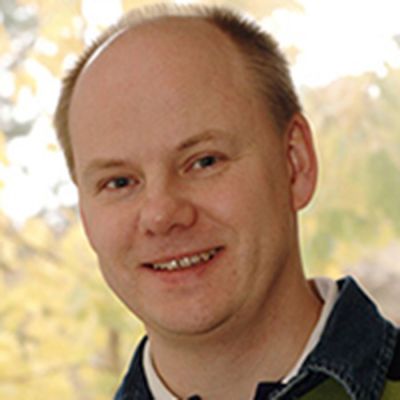
Johan Wessberg
Prof. Johan Wessberg, MD PhD, obtained the medical diploma in 1987. His thesis in 1995 concerned human hand motor control and proprioception. He did a postdoc in the group of Prof. Miguel Nicolelis, Duke University, USA, pioneering work on brain-machine interfaces in monkeys. His current lab combines the technique of human microneurography, where the activity of single, identified nerve fibres is recorded in the peripheral nerves, with brain imaging using EEG, MEG and fMRI. He also maintains a strong interest in applying Machine Learning and other methods for the analysis of brain and peripheral nerve signals.
21st September 15.00-16.00
Biological and bionic hands: Natural neural coding and artificial perception
Neuroscience of touch and its relevance to prosthetics.
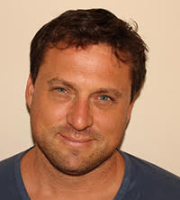
Sliman Bensmaia
Sliman Bensmaia is The James and Karen Frank Family Professor in the Department of Organismal Biology and Anatomy and in the Committee on Computational Neuroscience. The main objective of his research is to discover how tactile and proprioceptive information is encoded in the activity of neurons along the somatosensory neuraxis of primates. To this end, his team records neuronal responses, measures the elicited percepts, and develops mathematical models to link neuronal representations to behavior. Bensmaia's team is also working towards restoring the sense of touch in bionic hands for amputees, through electrical interfaces with the nerves, or for people with tetraplegia, through electrical interfaces with the central nervous system. A widely published author, Bensmaia has spoken at dozens of invited talks and symposia and holds five patents. He is a member of the Society for Neuroscience, the American Physiological Society, and the Institute for Electrical and Electronics Engineers.
28th September 14.00-15.00
Tactile Mechanics Could Impact the Design of Prosthetics

Vincent Hayward
Vincent Hayward is a Professor at Sorbonne Université in Paris and currently spends part of his time contributing to the development of a start-up company in Paris, Actronika SAS, dedicated to lowering the accessibility barrier of haptic technology. Before, he was with the Department of Electrical and Computer Engineering at McGill University, Montréal, Canada, where he became a full Professor in 2006 and was Director of the McGill Centre for Intelligent Machines from 2001 to 2004. In 2008, he became an elected a Fellow of the IEEE and in 2019 a member of the French Academy of Sciences. During 2017 and 2018, Vincent Hayward was Professor of Tactile Perception and Technology at the School of Advanced Study of the University of London, supported by a Leverhulme Trust Fellowship, following a six-year period as an advanced ERC grantee at Sorbonne Université.
28th September 15.00-16.00
Wearable haptics and role of touch in telepresence
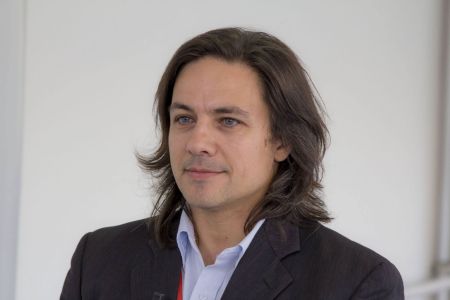
Antonio Frisoli
5th October 14.00-15.00
Development of a proprioceptive BCI: Confronting the challenge of mimicking a complex limb-state representation in somatosensory cortex
Relative to the sense of touch, proprioception remains quite poorly understood. Furthermore, efforts to replace proprioception via peripheral or central stimulation lag well behind those of touch. Our conscious sense of proprioception is mostly focused on where are hands are with respect to our body. This is also the basis of the classic model of how single neurons in somatosensory cortex represent limb state. We used this model to design experiments testing intracortical microstimulation (ICMS) as a means to convey a sense of limb movement to monkeys. While the experiment worked well in one monkey, we were subsequently unable to replicate it.
This limited success has led us to re-evaluate the simple hand-based model in somatosensory cortical area 2, and in the cuneate nucleus (CN). Prior to our recent work, single neurons had never been recorded from CN in an awake animal, largely due to its inaccessible location in the base of the dorsal brainstem. In our recording, we could drive CN neurons strongly by muscle vibration (which activates muscle spindles), but only rarely by more than one muscle. We were able to predict CN firing rates more accurately by changes in muscle length than by the kinematics of arm movements. Area 2 neurons, in contrast, receive convergent input not only from multiple muscles, but also from tactile receptors, yielding rather complex receptive fields. The well localized, punctate activation in tactile regins of cortex produced by simple skin indentation can be mimicked relatively easily by ICMS. This is not the case in area 2, where even very simple limb movements cause widespread activation, and there is no evidence of an organized map of limb movement direction. We have begun to test more complex, multi-electrode stimulation paradigms with the hope that they may be more readily interpretable as a source of artificial afferent input than is single-electrode ICMS.

Lee Eugene Miller
5th October 15.00 - 16.00
Artificial touch in brain-computer interfaces
Over the past decade, several groups have implanted microelectrode arrays into the sensorimotor cortex of paralyzed individuals. At the University of Pittsburgh, we have worked with two volunteers and have shown that recording and decoding the activity of a few hundred neurons in motor cortex enables a person to control a prosthetic arm with up to 10 degrees-of-freedom continuously and simultaneously. However, we know that the somatosensory system is essential to regulate ongoing movement and enable controlled interactions with the environment. Five years ago, we implanted electrodes into area 1, a tactile region of somatosensory cortex, to try and restore artificial touch and create a bidirectional brain-computer interface. In this talk I will describe how cutaneous sensations can be restored through microstimulation of the somatosensory cortex. I will focus on what they feel like, how stable they can be, how these experiments can uncover basic organizational principles of the somatosensory cortex and how these tactile percepts can substantially improve task performance. Our ultimate goal is to understand the structure and function of the sensorimotor cortex and use biomimetic design principles to restore dexterous hand and arm movements, complete with the appropriate sensory experiences, to people who have lost their limbs or are unable to use them because of injury or disease.
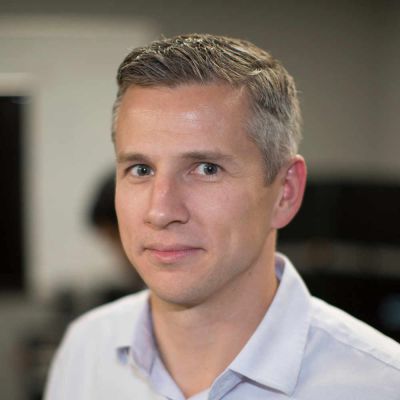
Robert A. Gaunt
Robert A. Gaunt is an Assistant Professor in Physical Medicine and Rehabilitation at the University of Pittsburgh. Robert earned a B.Eng. degree in Mechanical Engineering from the University of Victoria (Victoria BC, Canada) and a Ph.D. in Biomedical Engineering at the University of Alberta (Edmonton AB, Canada). His primary research interests are in sensorimotor control of the hand and bladder. Specifically, this encompasses understanding the role that somatosensory feedback on control and how biomimetic design principles can be used to develop neuroprosthetic technologies aimed at restoring sensory, motor, and autonomic functions for people with disease or injuries including spinal cord injury and limb loss. The hand and bladder are scientifically linked by the powerful role that somatosensation has on reflex function and consciously mediated behaviors, while the functional importance of these two systems are frequently highlighted by people living with spinal cord injury. Active research topics include developing novel neural interfaces to regulate bladder function and developing bidirectional implantable brain computer interfaces to restore movement and sensation to people with upper-limb paralysis. He holds a number of patents and his work has been covered by numerous national and international media outlets.
12th October 14.00 - 15.00
Commercialization of Nerve-Computer interfaces
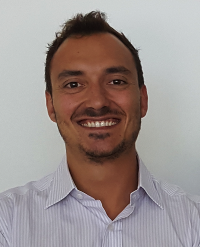
Francesco M. Petrini,
Francesco has worked at the business development during the first steps of SensArs: IPs preparation and filing, funds raising, business plan preparation. During his entrepreneurial activity he was awarded with several prizes and grants: Brain Forum start-up award (2015), Best 3 IROS start-up award (2015), Innogrant (2014), IMD award (2015), Spin-fund (2015), Venture Kick (2016), top 25 Venture (2016), Top 100 Swiss startup (2017), EU FET Launchpad (2017), EIT Health Headstart (2018), EU FTI (2019). He holds a PhD in neural engineering (University Campus Bio-Medico, Rome) and specialisation in the technology transfer and business development. During his studies, he has visited for more than two years the most important schools of Europe, École polytechnique fédérale de Lausanne (EPFL, Switzerland) and Imperial College of London, obtaining certificates for business and management competencies. He has been for 2 years the manager of the SCRIPT European project for San Raffaele Pisana (Rome) and he has worked within several relevant European projects (TIME, EPIONE, NEBIAS). He holds 2 patent applications.
12th October 15.00 - 16.00
Human-machine (interaction,interfaces): it isn’t about machine learning
After introducing and motivating the talk, I’ll define my personal ideal human-machine interface for the disabled, revolving around the concept of natural control and sensori-motor schemes, in the constructivist sense. Optimising the interaction between a user and a machine is not about machine learning, although we cannot do without it, nor it has to do with big data. Rather, it is a matter of collecting good data from the user and/or pushing the user to produce good data, monitoring and exploiting reciprocal adaptation and building appropriate interaction strategies. I will then sketch the current achievements of natural control via adaptive biological HMIs, going into some detail about how to model the relationship between biological signals, the user’s intent to move and control signals for a robotic artefact (in teleoperation, prosthetics, virtual reality). Lastly, I’ll throw some open question and issues to the audience, hoping to stimulate an articulated discussion.
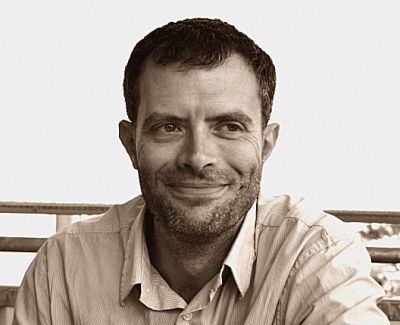
Claudio Castellini
Claudio Castellini is a senior researcher and team leader in rehabilitation and assistive robotics, human-machine interfaces and interaction and applied machine learning. He obtained a degree in Electronic (Biomedical) Engineerings in 1998 from the University of Genoa and a Ph.D. in Artificial Intelligence (Mathematical Logic) in 2005 from the School of Informatics of the University of Edinburgh. He then turned his attention to robotics for the disabled, and after spending 4.5 years as a post-doctoral fellow at the Advanced Robotics Laboratory of the University of Genoa, he landed at the German Aerospace Center where he currently works. As of now, he has (co)authored short of 120 scientific papers, he is involved in a few research projects and he has served, or is currently serving, for some international editorial boards and committees.
All days 16.00-17.00
Early Stage Researchers Presentations
During the event our PhD students will present the work carried out so far.
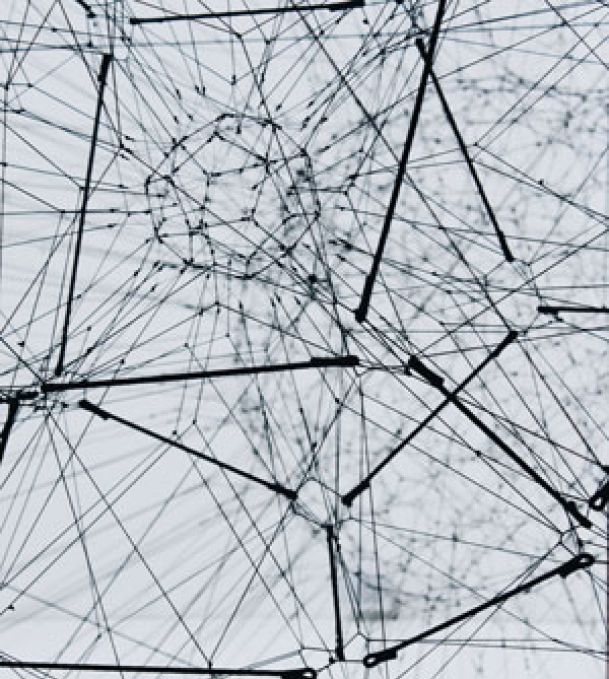
Network's Researchers
Neutouch employees 15 students from different institutions in Europe
All days 17.00-18.00
Soft Skills 101
How we communicate our information it is as important as the content. Together we’ll reflect on how to produce high impact scientific presentation, from the storyboard to the speech. We’ll discover how brain works to understand the deep meaning of our communication strategies. We’ll also reflect on how to be present and the mechanism of human attention. Virtual workshop will be supported by video and group discussion.

Michela Lupi
Michela Lupi is a professional certified coach. She has 15+ years of experience in Human Resources with main assignments as training leader and HR leader in both multinationals and non profit organizations. While developing her career in different organizations (private sectors and universities), she has been involved with several different training activities, teaching organizational development, teamwork, and interpersonal communication skills. She is currently a freelance ICF professional certified Coach (PCC) focused on: business, executive and team coaching and also EQ assessor and Vital Signs consultant (Six Seconds), aiming to apply emotional intelligence principles to work, school and local communities.
Organization Committee

Giulia Corniani
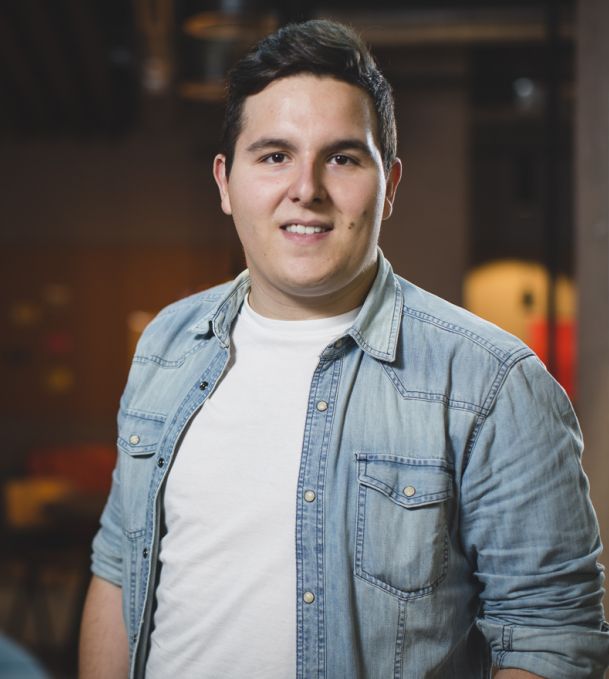
Miguel Casal Angel
Miguel is a Ph.D. student both in the Università di Genova and Istituto Italiano di Tecnologia (at the Neural Computation Laboratory). He is a Marie Skłodowska-Curie fellow of the Neutouch project. His current research is focused on understanding how tactile information is processed and used by the human nervous system, although he is also interested in systems biology and physics of complex systems.
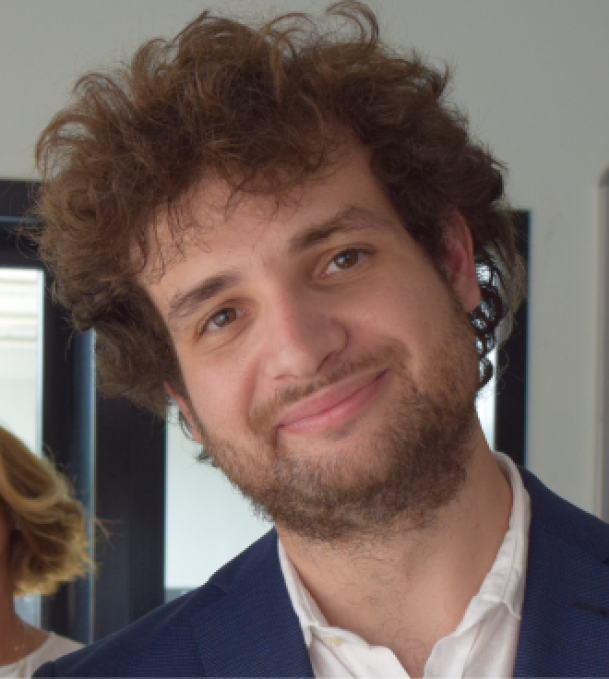
Michele Mastella
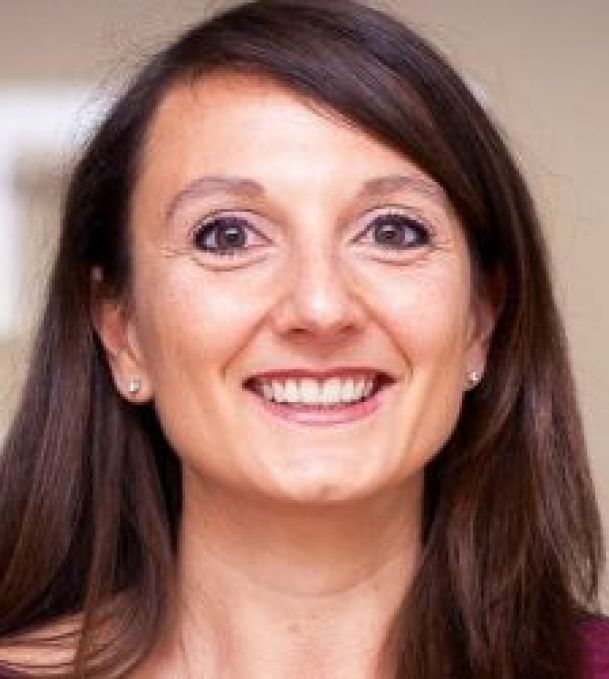
Chiara Bartolozzi
Chiara Bartolozzi is a Researcher at the Italian Institute of Technology. She is currently leading the Neuromorphic Systems and Interfaces group, with the aim of applying the "neuromorphic" engineering approach to the design of robotic platforms as enabling technology towards the design of autonomous machines. Chiara is project coordinator for Neutouch, an MSCA Innovative Training Network.
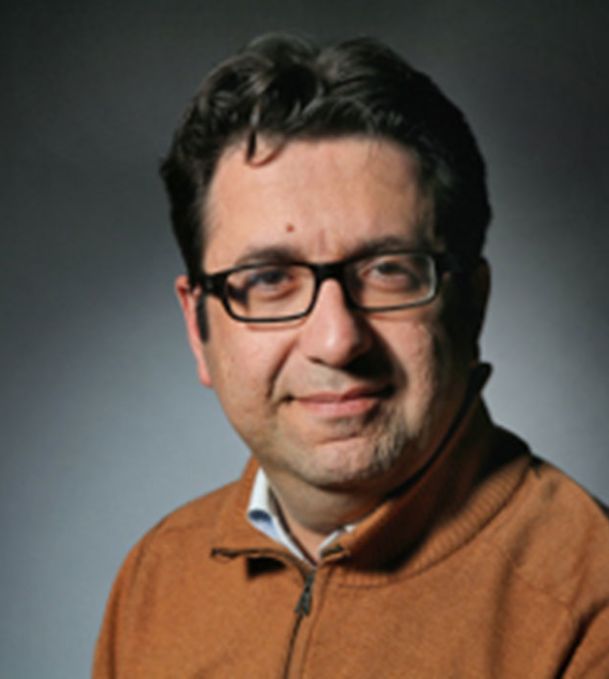
Silvestro Micera
Subscribe
SEE YOU SOON!
The summer school is finished!
If you missed it don't worry! Every year we will have a summer school entirely about touch!
Fill the 'Interest Funneling' for being kept informed about the new upcoming events in our three core areas.